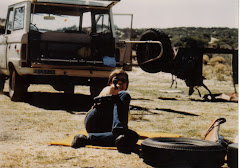 liance
liance I grew up in the Great White North in the 1950's. I often tell friends that I think that was probably the very best time in history to be a child, though I'll admit that I'm looking through Wayne-colored glasses. The period just before World War One might have been a better time (as long as certain illnesses were avoided), but I don't have a clear vision of that time.
We actually walked to school in those days, carrying our Gene Autry lunch boxes filled with goodies made by Mom and bought by Dad. We weren't carried to a chain-link surrounded prison-like structure sixty miles from home by an evil-smelling retard driving an ill-maintained black smoke spewing yellow death trap, or even in a bullet-proof four-wheel-drive rebodied pickup truck with heated seat cushions and a HDTV screen in the back.
Sometimes it was cold. As I've told my friends here in the Stalag, we had to slog four miles through waist-deep snow in -20 degree temperatures, and it was uphill both ways. That's a bit of a stretch, but we did walk and some days it was -20. The good part was that we were free to experience little adventures of many kinds, within the constraints of getting to school on time and getting home in time for dinner. Today's kids don't get that.
The main reason I bring all this to your attention is that this may be a part of the difficulty I'm about to discuss.
There were some really cold and miserable winters in North Dakota in the 1940's and 1950's. Added to that, technology was far less advanced than it is now. I'm not saying that winters are milder now. Winters and short periods within winters are very severe, where others are less so. No change there.
The change is, however, in how the "victims" handled severe weather then, as opposed to now. People rarely died in blizzards in the '40's and '50's. We made sure we had a basement full of coal or a tank full of fuel, and replenished it well before we ran out. Our winter clothing may not have been pretty or stylish, but it was warm. People didn't trust their cars: everyone realized that the car might not make it, and so we carried chains and shovels in the trunk. We had outdoor clothing with us in the car (usually, we were wearing it--the car heater often wasn't enough!).
This winter, and numerous times in recent years, there are news stories about individuals dying in cold and blizzard conditions. I won't try and tell you that this never happened in those earlier decades, because it did. What I will say, is that many of the recent freezing deaths ought to have been, and could 've been, avoided.
Herein lies the problem. We (most of us) trust our cars. We tend to let our technology do our thinking for us. That and, as I often say: today's younger people don't know how to connect actions with possible consequences.
The news reported, over a period of days last month, the plight of a family that got stuck in Oregon, in very cold weather and far from a town or any help. Fortunately, mother and child were rescued before they succombed, but Dad, having left the car to try to walk to a place in which help could be found, died.
In the chatter about the heroism if the dad in his sadly failed, but valiant attempt to find help for his family, the fairly long list of errors that led to their predicament was hardly mentioned.
There was no emergency clothing in the car. Nor were there any emergency tools or survival gear. Having missed a turn, they took an unknown road shown on a map, and got stuck when it turned out that the road was unmaintained in winter.
A series of small errors that proved fatal.
So, are we (many of us) getting too soft? Are we of the opinion that "something" will take care of us? Why is it that so many of us step off into very dangerous situations, unprepared, thinking we'll make it, somehow?
Or, is it that we know that, in the end, we're gonna die anyway?
Ponder it, if you dare!
Warm regards,
Col. Hogan
Stalag California
Addendum, Jan 7:
Today, I was just made aware of a "weather bulletin," an unattributed news story from the state in which I lived in my childhood. I've read something like this before, and I don't know if it actually appeared in the news (no names of officials nor actual locations), but I've lived through situations much like this myself, a couple of times. In essence, it is truthful.
This particular version appears in "Tibor's Place on the Web," Tibor Machan's website on MSN.






1 comment:
Good yarn. I especially liked the part about -20 days. I remember days that it was REALLY cold. You must have already gone to the Great Lakes huh?
Post a Comment